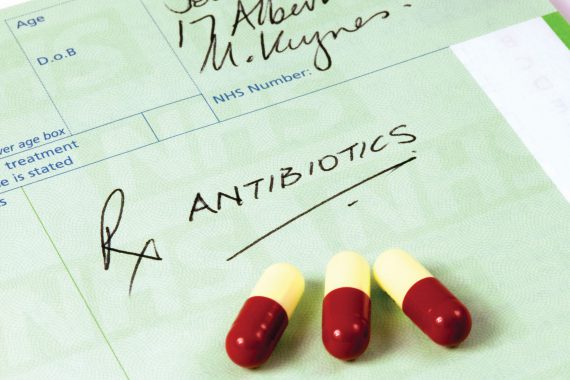Antibiotic use in primary care in Scotland is at its lowest figure since records began.
According to a report by official body Health Protection Scotland, antibiotic prescribing in primary care has decreased by 10.2% since 2014 – the lowest level since data became available in 1993.
In 2018, the use of antibiotics in primary care – excluding dental prescribing – was 1.84 items per 1,000 population per day, compared with almost 2.1 items per 1,000 population per day in 2014.
Overall total antibiotic use among people in Scotland has fallen 6.2% since 2014, and in 2018 more than one in four people in Scotland (27%) received at least one course of antibiotics prescribed by GPs.
Data analysed by HPS shows that while GPs account for the majority of antibiotics dispensed in primary care, one in 10 are prescribed by nurses – twice as many since 2014.
In contrast, since 2014 antibiotic use in acute hospitals has increased by 16%, said the report.
The report said: ‘Reducing the Scottish population’s unnecessary exposure to antibiotics is critical to containing and controlling antimicrobial resistance.’
Scottish Antimicrobial Prescribing Group (SAPG) project lead Dr Jacqueline Sneddon said: ‘For the last 10 years the Scottish Antimicrobial Prescribing Group, working with NHS boards and primary care teams, have supported a range of local interventions aimed at reducing unnecessary use of antibiotics for self-limiting infections in the community.
‘The latest data demonstrates the success of these interventions and will support NHS Scotland in meeting UK ambitions for reduction of overall antibiotic use to tackle the threat of antimicrobial resistance.’
Elsewhere in Scotland, patients of a closed practice in Perthshire were asked in a Government questionnaire to rate its surgery’s performance, even though it had closed down months ago.

















